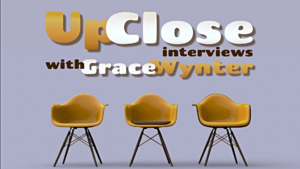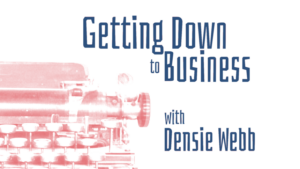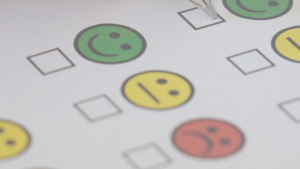INSIDE PUBLISHING
In Kathryn Craft’s WU post for May 9 (“To Diagnose or to Characterize?”), David Corbett makes the following comment:
“Having been in reading/writing groups early in my career, and having counseled students who’ve received curious feedback from other group members, I’ve come to realize that you have to be able to discern valid criticism from that which is something other than valid.”
These words registered with me. In part because of problems I met up with in a writers’ group, I have become a strong advocate for writers submitting their work to professional editors. It costs money, but in my view it’s money well spent. This assumes the writer takes pains to learn all she can before choosing an editor. But an editor and writer form a two-member writers’ group, so knowing how to “discern valid criticism” is no less important.
The practice for some who write WU posts is to wait to the end to summarize main points. But what comes first has the best chance of sticking with the reader, so up front, here are the TAKEAWAYS from today’s post on how to choose an editor.
1. Check the editor’s own writing. Whether it’s a marketing pitch or a response to your questions, make sure your would-be editor’s grammar, syntax and punctuation are as close to perfect as possible.
2. Ask for a sample edit. Editors usually offer to do a sample edit of a few pages to show possible clients how they work. (I would reject any editor who didn’t offer such a test sample.) Are the editor’s comments of the sample clear and useful?
3. Tap the spine. How-to books have become their own genre, and some editors write them. Two such excellent books that I’ve read were written by Writer Unboxed regulars Dave King and Tiffany Yates Martin. In both instances, the writing in their own books made the case for why I should do business with them. After all, editors are trying to sell themselves. They want you to hire them to edit your words. If their own words don’t measure up, I would forget whatever recommendation someone may have given to you, and move on.
4. Pay special attention to the choice of words editors use. Do they rely on commonplace buzzwords and cliches? Is there anything fresh or novel in what they themselves have written? For me, doing this is like using the “Look Inside” feature at Amazon. When I see a book description that sounds interesting, I read the opening pages. If they lack freshness or an intriguing voice, I don’t care what the writer’s reputation may be, whether the book has a zillion five-star reviews or made the NYT bestseller list. Same with editors. The writing has to sell me, not a list, or a third-party opinion.
5. Be sure you’re clear on the differences between copy editing, line editing, and developmental editing. You need to know them to fully understand the contract before you sign it.
6. Understand the beginning, middle and end—of your agreement. Will your arrangement with the editor also include follow-up contact after your manuscript has been edited? If so, will that involve additional charges? My arrangement with […]
Read MorePlease welcome Michael Castleman to Writer Unboxed today! Michael is the author of 19 books, both fiction and nonfiction, the latest of which releases TODAY. The Untold Story of Books: A Writer’s History of Book Publishing is the first book to trace the 600-year saga of publishing from an author’s point of view, with emphasis on the possible joys and many perils of the 21st-century book business.
“Entertaining, fascinating, deeply researched, and crisply written, The Untold Story of Books is full of surprises. I worked in publishing for thirty years and was amazed how much I learned about the industry. No other book provides such a comprehensive and witty overview. The Untold Story of Books is a must-read for authors, aspiring authors, and anyone who loves books. The publishing industry is often shrouded in mystery. This book lifts the veil and provides a fresh, new, compelling perspective.”
—Mark Chimsky, former editorial director of Harper San Francisco, former director of trade paperbacks at Little Brown, and former editor-in-chief of the trade paperback division at Macmillan
We’re thrilled Michael is here to shine a light on a topic he knows well–the dark side of the business, and how we might avoid it.
Over the past decade, author scams have multiplied like the brooms in the Fantasia scene of Disney’s “The Sorcerer’s Apprentice.” WU has done an admirable job helping authors detect scams—and avoid them. But few authors appreciate why scams have recently become so prevalent. The reason is the advent of digital publishing, and its result, an unprecedented avalanche of books.
1980 Vs. Today: What a Difference!
To understand why scams have proliferated so insidiously, consider these numbers.
No wonder so many authors feel so frustrated about marketing their work.
No Single Path
Back in 1980, book publishing involved a single path from idea, to proposal, to agent, offer, contract, editing, acceptance, and release—with champagne. Book promotion depended […]
Read MoreGreetings, WU family! I’m pleased to be back with the latest in my Up Close series—a series designed to provide insight into the publishing industry from various stakeholders, including authors, agents, publishers, and today’s guest, a media strategist. A veteran of the publishing industry, Linda A. Duggins is the former Senior Director of Publicity at Grand Central Publishing/Hachette Book Group where she led successful national campaigns for authors such as Tayari Jones, Jane Goodall, and the late Octavia E. Butler. In her current role as an Independent Media Strategist, Linda helps authors identify their books’ key selling points and teaches them how to leverage media opportunities to build awareness and boost sales. In today’s Q&A, Linda offers valuable insight into crafting a clear and compelling message about your books and your writing.
GW: Thank you for agreeing to this Q&A. First, can you tell us a bit about your career in publishing as it relates to media and publicity?
LD: There has never been a time that I did not enjoy talking about books. Spreading the word about amazing reads that keep me up at night or make me think well beyond the last page has been an ongoing experience for me. Prior to my publicity role at Grand Central Publishing, as co-founder of the Harlem Book Fair, I spent a considerable amount of time pitching various stories about the book fair, the authors and their books, and information about the various organizations that supported the work around what the book fair entailed. I was that person on the subway in NYC passing out upcoming book event postcards and advanced reader copies to just about anyone who dared to look at me. The organic transition to becoming an in-house book publicist was challenging and very exciting. Getting the media and booksellers to pay close enough attention required strategy, effective people skills, perseverance, timing, and luck. There was plenty of reading, book campaign strategizing, meeting media professionals, book tour planning, and engaging with book club members as well as booksellers and librarians. It’s really a blended affair, with collaboration inside the publishing house as well, with editors, marketers, the creative team, sales, audio, and many others.
GW: What exactly is media training and how does it relate to authors, both self-published and traditionally published?
LD: Media training is a form of communication coaching designed to help an author navigate interactions with the media to effectively convey their message, handle interviews, and manage conversations about various topics including: the author’s backstory, writing career, and book details, just to name a few. With media training, the goal is to help authors learn how to keep the title of their books and the key selling points up front and top of mind during interviews.
Read MoreGetting a book-length manuscript to the finish line, polishing it, and launching it into the world require a single-minded focus–and a community of writers like this one to believe for us when the publishing journey gets rough. As a first-time author, I didn’t know what to expect. For a long time, no one was waiting for The Kindest Lie, so I had many years to stop and start, to play, and to delight in the fairy dust that is sometimes (if you’re lucky) sprinkled over a shiny debut. Then I signed a contract with William Morrow/HarperCollins for a second book, People of Means, which releases in February 2025. Anxiety took over, and I wondered if I could do it again. The second time around as an author isn’t easier, but I’m wiser and better prepared.
Here’s what I’ve learned:
You never master the craft. The book isn’t ready when you think it is.
After at least three years of writing workshops and several drafts of my first novel, I thought it was in good shape to send to agents in my quest for representation. Not so much. Following close to 100 rejections, I took a step back for a year-and-a-half and workshopped excerpts of my book at the Tin House Summer Novel Workshop and Kimbilio Fiction for African American writers. Then I engaged five writer friends to beta read for me. Only then did I get two offers of representation and choose the wonderful Danielle Bukowski of Sterling Lord Literistic. Subsequently, my fabulous William Morrow editor, Liz Stein, took my manuscript through three grueling rounds of edits.
When I began writing my second novel, I felt pretty confident that I knew what I was doing since I had done it once. Wrong! After sending early pages to Liz, I learned that the book needed a lot of work: structure, character development, relationships, motivations, and more. Under contract with a tight deadline, I didn’t have time to solicit beta readers or workshop the book. With Liz asking me lots of probing questions and helping me dig deeper, I revised multiple times until finally the book on the page came close to matching the vision in my head.
Life doesn’t pause for the publication of a novel. Don’t be afraid to ask for what you need.
I have a demanding day job leading corporate and internal communications for a large health care organization. Early in my writing days of my second novel, I got promoted to a director role and began leading a small team. The day job supports my writing habit, so no complaints there. But suddenly, I had more responsibilities, which made my writing time even more precious.
Soon after, my mother began to repeat the same stories and mail greeting cards more than once for the same occasion. A neurologist diagnosed her with Alzheimer’s, and I took on the role of caregiver. With a deadline for book two looming, I sold my mother’s house and moved her into a senior living community and helped her navigate this monumental life change. I desperately wanted to do it all, but I couldn’t. As a former journalist, I’m a stickler for deadlines but I knew I couldn’t meet this one. With great trepidation, I asked my […]
Read MoreThere are many hot takes on social media about how to write a book, what traditional publishers like, and what you need to do to make your novel a bestseller. There are some kernels of advice that are very useful, but others make you want to scratch your head and wonder where on earth they come up with that one?
Below are some of my favorite myths about the publishing industry, and some truths about them.
You have to have an MFA to be published by traditional publishers.
While this one is new to me, it’s still fairly ridiculous. You don’t need to have an MFA, or even a writing degree for that matter to be a novelist. Many authors come from diverse backgrounds; I have met former attorneys, doctors, businesspeople, stay-at-home moms, and retirees who have books published by a traditional publisher. I have a degree in sociology and a paralegal certificate and have managed to publish two novels. I also know some best-selling authors who don’t have a degree at all. If the writing is good and the story is compelling enough, then a publisher will take an interest in you.
Other authors are your competition.
This could not be further from the truth. Other authors are not just your colleagues, they are your friends, your support system, your mentors, and at times your research buddies. I don’t know how many times I I’ve sat with another author for a cup of coffee and venting session. Or have gotten a text from a writing friend excited because their novel is getting a starred review, and so we celebrate together. Other authors are your tribe. I honestly don’t know where I would be without the advice and friendship of other writers in this community. To look at them and treat them as your competition is only hurting yourself.
There is one way to write a book.
Everyone has their own methods. I like to outline and write continuously from the beginning to the end. Other authors refuse to outline and love to pants their way through a novel; what happens at the end is just as much a surprise to them as it is to their characters (and sometimes their editor). Others like to jump around, writing scenes at the beginning, middle, or end as they so choose. The point is, there is no one way to write a novel, whatever helps you finish writing the book is the right way to write a novel.
Traditional/Independent/Hybrid type of publishing is the best/worst way to publish a novel.
Whether you’ve published independently, traditionally or hybrid, they are all valid. One is not better than the other. Each one comes with its own challenges and its own rewards. In today’s age, self-publishing doesn’t mean you gave up on trying the traditional publication route or that it was the easy way out. I hate to break it to you, but there is no easy way when it comes to publishing. Truly, getting your book out into the world comes down to one simple question: What avenue works best for you? Research the challenges, ask other authors, and decide for yourself what you want for your writing career.
You have to do all the things for your book.
Just in case […]
Read MoreAs some of you may already know, in addition to being a highly sought-after shirtless model for romance novel covers, I am also a longtime professional musician, having earned my first money for playing drums at the ripe old age of 14. In fact, music was my fulltime profession until my late 30s. And I didn’t start seriously writing fiction (inasmuch as anything I write could be considered “serious”) until I turned 40. (So you might say that as a writer, I was a 40-year-old virgin. But I digress…)
Coming into a new-to-me art form with a lengthy background in another, I’ve been repeatedly struck by how many parallels I’ve encountered between the two creative paths. It has also been interesting to note the very different experience of learning one art form as a child, and learning another as an adult (inasmuch as a person like me could ever be considered an “adult”).
But I’ll leave the exploration of the whole young-versus-old-artist rabbit hole for some other day. Today, I want to explore five similarities I’ve found in pursuing two art forms – writing and music – at the professional level. I’ll start with the one I think is most important:
1. It’s a business.
Thus far I’ve been calling them art forms, but when you start actively seeking a paying audience for your work – whether written or musical – you quickly become aware that you are dealing with a business, which brings with it numerous rules, obstacles and rites of passage, many of which are not clearly stated or even openly acknowledged. Yeah, it’s fun like that. Trust me: You’re gonna want to wear a helmet.
In each case, because it’s a business, many decisions that will affect your success are A) based on money, and B) out of your hands.
As a musician, this could come down to who is willing to hire you, or to pay to see you perform, or to publish your music (an area that used to be where the money was in songwriting), or to finance your recording and/or tour, or to buy your recordings. Bottom line: It’s about who will spend their money on this thing you chose to do. As the artist, all you can do is make whatever product or service you’re offering as appealing – and as competitive in terms of financial value – as possible.
Writers are in a similar position. Whether you’re pursuing the traditional publishing route, or self-publishing, or trying to get a piece of your dramatic work produced either on stage or screen, somebody else has to decide that what you’re doing (or promising to do) is worth their money.
In both cases, as an artist, you are free to express yourself in any way you see fit. But as an artist who wants to be paid for that art, it quickly becomes obvious that some pathways lead a bit more directly to potential revenue generation than others. Hence my next observation:
2. Genre matters.
For example, a thrilling 70,000-word whodunit with a strong, confident protagonist stands a better chance of selling some copies than a 600-page second-person diatribe exploring the modernist paradigm of discourse that forces the reader to choose between subcapitalist situationism and the dialectic paradigm of consensus. (Incidentally, I have no […]
Read MoreLots of juggling going on in publishing this past month. Where it lands, nobody knows. Efforts to increase inclusivity also made the news. The book banning train has left the station in some states, the first defamation lawsuit over AI has been filed, and audiobooks may be coming to a brick and mortar store near you. Read on.
AI
AI’s Possible Effects on Publishing
Authors Join Legal Battle Brewing Over AI
Writers’ Guild of Great Britain Issues Policy Position for AI
Open AI Faces World’s First Defamation Lawsuit
Audiobooks
Audiobooks Offered in Some Brick and Mortar Stores
Book Banning
Booksellers in the Forefront of the Fight Against Book Bans in Texas
Industry Groups File Suit to Block Texas Book Rating Law
Free Expression Challenges in the US and France
Fight to Uphold Block Florida’s Stop-Woke Act
Bookstores
New and Improved Barnes & Noble?
Efforts to Save Flooded Vermont Bookstores
Inclusivity
Disability Representation in Publishing
How the National Braille Press Brings Books to Blind Readers
Indie Publishing
Writers Digest Lists Best Indie Websites for 2023
Self Publish with Barnes & Noble Press
Startup Proposes Influencer-Driven Publishing
Publishing Changes Afoot
Layoffs at Penguin Random House, Presses closing, Booksellers Unionize, Possible Publishing Buyout, The Possible Effects of a UPS Strike, Copyright Crisis and more.
Random House Buyout Triggers Departures
End of an Era at Random House?
One Billion Dollar Audiobook Sale?
Harper Collins Files Grievance After Union Head Fired
Mental Health Crisis Among Authors and Publishers
Ripple Effects of Layoffs and Shuttered Imprints
The “Merchification” of Book Publishing
Canada’s Downsizing at Access Copyright
Did I miss any major news? If yes, let me know, and I’ll try to follow up next month!
Read More
Second verse same as the first—AI led the news once again in June, followed by Book Ban news, but resistance seems to be gaining momentum. The USA Today Bestseller List is back! And a New York Times article about Goodreads apparently caused the site to crash. But no fear, it’s back, warts and all. So, dig in!
AI
Will AI forever change publishing? What about copyright issues? Japan has a few things to say about it and a hearing was held in the US on the topic.
How AI Is Changing Book Publishing
Will Google AI Search Turn Digital Publishing Upside Down?
The Riddle of AI, Copyright, Authorship, Ownership
Key Takeaways from Hearing on AI and Copyright Law
Japan Issues Statement on AI and Copyright Regulation
Amazon Tactics?
Alleged price fixing and manipulative tactics by Amazon were in the news.
FTC Sues Amazon Over Manipulative Tactics
Court Hears Case About Price Fixing by Amazon and Publishers
Audiobooks
Audiobook listening is still growing, but will AI be the next voice you hear?
European Publishers See Audiobooks and AI as Inevitabilities
Where to Start with Audiobook Publishing
Audiobook Listening Is Trending Up
Libraries and Censorship
The American Library Association is fighting the good fight against book censorship, and Judy Blume is aiding in the fight.
American Library Association Fighting Censorship
Libraries Reaffirm Freedom-to-Read
At ALA Judy Blume Defends Freedom to Read
New “Book Sexual Rating” Law in Texas
Lists and Reviews
USA Today Bestseller List Is Back!
Goodreads—The Good, the Bad, and the Ugly
Publishing Trends and Happenings
June’s publishing news ran the gamut from publishing company acquisitions and Black women in publishing, to the carbon footprint of books and LGBTQ voices in literature.
Black Lawrence Press Acquires Nomadic Press Adult Titles
Graphic/Comic Formats Enliven Religious Titles
Elizabeth Gilbert’s Decision to Pull Russian-Set Novel
European Book Fairs Want American Literature
Australia’s New Publishing Guide
Carbon-Emission Labels on Books in the Future?
Sales
Sales numbers are a mixed bag. Read ’em and weep.
Publishing Blind Spots Miss Sales
April Publishing Numbers Tell a Story
What did you find to be the biggest publishing news during the month of June? Did I miss something major? If yes, please let me know. I’ll be here same time next month!
Read MoreWriters of all genres, editors, agents, publishers, reviewers, and PR folk:
The genre label “women’s fiction” is at a cross-roads. If you’d like to share your thoughts about the genre and label via a 10-minute online survey, the research group hired by WFWA to help explore those issues would very much appreciate it. As incentive, those who participate are eligible for a gift card raffle.
The survey: https://www.surveymonkey.com/r/58F5R8H
Feel free to share this post and/or link with other writers and industry folk. Many thanks.
Read MorePlease welcome guest author Emilie-Noelle Provost to Writer Unboxed today! Emilie-Noelle is an accomplished editor and writer, having held editorial positions with four magazines and written hundreds of articles over the years. She has a published book of middle-grade fiction, The Blue Bottle, and her first novel of adult fiction, The River is Everywhere–about a 16-year-old who must overcome doubt after his best friend’s shattering death–will release on March 14th.
“Provost’s writing is vivid, and her pace is swift. Readers of all ages will be drawn to this moving coming-of-age tale.”
– Paul Marion, editor of Atop an Underwood, the early work of Jack Kerouac
“Ernest Benoit’s odyssey begins as a search for some meaning that can help him better understand his best friend’s tragic death. But his, at times, dangerous journey quickly becomes a search for his own roots and soul. Provost is a gifted storyteller. The River Is Everywhere is well worth your time.”
– Stephen P. O’Connor, author of The Witch at Rivermouth
Though The River is Everywhere has not yet released, Emilie-Noelle has unfortunately already experienced online harassment over it. Today, she shares that encounter and some advice on how to cope with it.
You can follow Emilie-Noelle on Twitter and Facebook, and learn more about The River is Everywhere on her website: emilienoelleprovost.com. Welcome, Emilie-Noelle!
The day I signed the publishing contract for my second novel, I wrote a post about it on LinkedIn. I tagged the book’s soon-to-be publisher in the text, and included an image of their logo. The small press publishes just ten books a year. The fact that my book would be one of them was tremendously validating. I was delighted to share my good news.
Within minutes of the post going live I received a comment from a writer I was connected with on the platform but didn’t know very well. “That’s a vanity press!” he wrote. “Don’t publish your book with them. You’ll ruin your credibility. Everything you’ve worked for will go down the drain!”
Thinking this person was simply misinformed, I replied. “You must be confusing them with another publisher,” I wrote. “These guys are the real deal.” As proof, I added the link to my new publisher’s website. Believing I had settled the matter, I logged off.
When I looked at the post again later, I was horrified to discover that the same person had gone on an all-out digital tirade, posting multiple comments about how the publisher I had signed with wasn’t legitimate, and that as an author, neither was I. I realized then that, for some reason I still don’t understand, this complete stranger was trying to publicly discredit me and my work. I reported his comments to the site’s admin, removed him from my connections, and deleted the post.
The feeling of accomplishment I’d had that morning evaporated. I was sad and confused. I’d worked on that book for years. Why would a person who knew nothing about me or my work put so much effort into casting doubt on my achievement? Why would anyone be so mean to someone they don’t even know?
Some people get their sustenance from tearing apart others’ creative work. […]
Read MorePlease welcome bestselling author Jamie Beck to Writer Unboxed today! Recently, Jamie asked the opinion of other writers over social media about trigger warnings on novels, and such a robust conversation evolved that it seemed obvious: This would make a great topic to explore on WU. Happily, Jamie agreed to write the piece. From her bio:
Jamie Beck is a Wall Street Journal and USA Today bestselling and award-winning author of 18 novels, many of which have been translated into multiple languages and have collectively sold more than three million copies worldwide. Critics at Kirkus, Publishers Weekly, and Booklist have respectively called her work “smart,” “uplifting,” and “entertaining.” In addition to writing novels, she enjoys dancing around the kitchen while cooking, and hitting the slopes in Vermont and Utah. Above all, she is a grateful wife and mother to a very patient, supportive family.
Learn more about Jamie and the novel that sparked the conversation, The Beauty of Rain, on Jamie’s website: www.jamiebeck.com.
My publisher engaged a sensitivity reader to evaluate the portrayal of a neurodiverse character in my summer 2023 release (The Beauty of Rain). I eagerly anticipated the reader’s feedback, whose notes on that aspect of the manuscript were ultimately helpful and unsurprising. Conversely, her recommendation that I add trigger warnings about suicidal ideation and prescription drug abuse did momentarily throw me.
Most everyone knows that a trigger warning is essentially a statement cautioning a consumer/reader that the content may be disturbing or induce a traumatic response. Although these labels are not as commonplace in publishing as they are in film, television, and music, in recent years they’ve begun to appear on a book’s digital detail page, its back jacket, or in an author’s note. The big argument in favor of such labels is that they give a reader the choice to avoid a book that contains material said reader might find harmful or that could unwittingly force them to revisit past trauma.
While I consider myself to be a compassionate person who would never purposely cause someone harm, my initial reaction was to reject the suggestion. Trust me, I know that sounds awful, but I worried that the warnings somewhat mischaracterized the tone and themes in my work. After all, if A Man Called Ove had included a suicidal ideation warning, many people might have missed out on an extremely life-affirming story. I discussed my concern with my agent and editor, both of whom also expressed doubts about the necessity of the warnings.
Coincidentally, around that same time I was doom-scrolling on Twitter and came across a New Yorker article from 2021 entitled “What if trigger warnings don’t work?” That piece discusses studies conducted with respect to the effectiveness of content warnings in academia (which are on the rise). The data suggests that such warnings not only don’t work, but they may inflict more harm by causing additional stress and reinforcing the idea that a trauma is central to a survivor’s identity (which is the opposite of PTSD therapy goals). On Twitter and in an Authors Guild discussion thread on this topic, more than one licensed therapist concurred with the article’s conclusions and believed trigger warnings had no meaningful effect.
You might […]
Read More



















